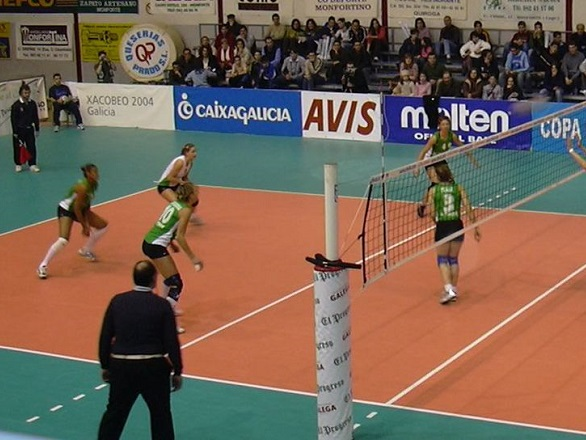

Team Qualifications
Volleyball is truly a team-based sport and relies as much on collaboration as talent.
So you might be the finest volleyball player ever, capable of spiking the ball so hard that the opposing team runs in fear, but that doesn't mean a thing if you can't get along (and play well) with your fellow teammates.
Of course, to be a great teammate, you must first make a team. Fortunately for you, there are a few to choose from. Especially if you're a woman. If you're gunning for Division I, there are 327 women's volleyball programs (yay), but only 25 men's programs (boo). If you don't think you're cut out for D-I, there are plenty more schools to explore—there are 271 women's programs at the D-II level, 414 for D-III, 243 for NAIA, and another 412 junior college teams (source).
For men, the prospects are much more limited; there are only 10 D-II programs out there, and 46 at the D-III level (source).
And what exactly does it take to make one of these aforementioned teams? To be honest, your physical attributes play a bigger role than you might think. If you want to play NCAA volleyball, you better be (a) fast, (b) tall, and (c) capable of jumping really high. Volleyball is a position-specific sport, and each position demands a unique set of skills and physical attributes.
Setters hoping to play D-I should be at least 5'8" for women and 6'1" for men. For outside hitters, the minimum expected height is 5'10" for women and 6'4" for men. Liberos, the pesky little 'uns on the floor, should be at least 5'5" for women, and 5'9" for men. You can expect top-tier middle hitters, the bruisers of volleyball, to stand at least 5'11" for women, and 6'5" for men (source).
Usually, D-I athletes will have at least an inch or two on their lower-division counterparts, so if you're a little smaller than the D-I prototype, you might find a home on a D-II, D-III, NAIA, or junior college squad.
If you're a lot smaller, you might need to pick a different sport. College coaches usually look for recruits with extensive club and varsity experience, too, because it shows that you can do important things like play the sport at a competitive level.